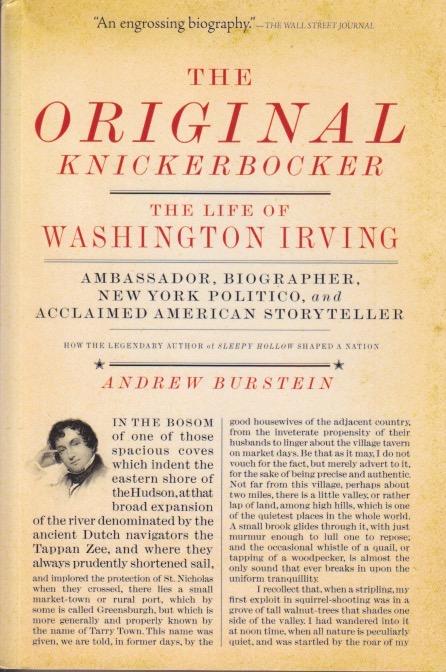
Washington Irving is one of those people with an outsized influence on American history who nevertheless has become ignored. He met nearly every US president from Jefferson through Franklin Pierce, and what’s more, most of them knew who he was. Sometimes decried as a less-than-original writing talent, Irving nevertheless led a remarkable life and through it all, treated others with respect and gentility. He’s also a bit of a mystery. All of this is captured quite well in Andrew Burstein’s biography, The Original Knickerbocker. Burstein does go off on some diversions from time to time, but most of them are quite interesting. One of the facts that astounded me was just how many early American political leaders were writers.
I don’t mean wealthy individuals hiring ghost writers to praise them in their “autobiographies,” but actual writers. Fiction and all. These were, pardon the period phrase, “men of letters.” Writing was a way of not only influencing people, but of improving one’s mind. Some of these individuals became presidents, others cabinet ministers, or foreign diplomats. Once his literary star ascended, Irving could get struggling writers a government post by a letter sent to the chief executive. It was a different day than that in which we live.
In my mind, Irving also stands out in that his fame came early and his later writings, while perhaps selling better, never eclipsed his early fame. And honestly, never reached his earlier shine. It began with his satirical History of New York. This book established him as a wit and a gifted writer. Since his family ran a secure business, Irving was able to travel without working for several years and didn’t produce his next book for another decade. The Sketch Book of Geoffrey Crayon, Gent. may not be known to many today, but two of its sketches are still told and retold. One is “Rip Van Winkle” and the other is “The Legend of Sleepy Hollow.” This book also helped to establish the American celebration of Christmas, something begun in his History. Although he would write many more books, he’s still best remembered for two short stories from his second.
Burstein takes his cues in this biography from “Rip Van Winkle.” This particular story is kind of a parable of Irving’s life. Irving couldn’t know this, of course, having published the story when he was about 36. His subsequent books sold well enough, and apart from a stint as American minister to Spain, he was able to make his living through his pen. There’s quite a lot in Burstein’s treatment that I’ll come back to, I’m sure. But for the moment, it left me feeling as if I’d met a great, if struggling, writer in person.
